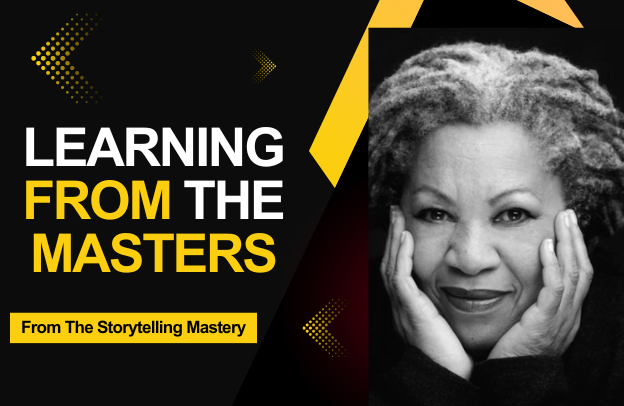The Wisdom Of Stoicism And Ancient Knowledge For Modern Living

Exploring ancient wisdom, Stoicism stands as a timeless guidance for profound benefits. Rooted in the philosophical traditions of the ancient, Stoicism offers deep insights into how to navigate the complexities of human existence with wisdom, resilience, and inner peace.
Want to learn more about storytelling? Start by downloading the first chapter of The Storytelling Mastery.
In this article, we will delve into the core principles of Stoicism, exploring its relevance in the modern world and uncovering the enduring wisdom encapsulated in its teachings. So, get a cup of tea and sit back as we explore this ancient wisdom.
Understanding the fundamentals of Stoicism
At its heart, Stoicism is a philosophy of personal ethics aimed at cultivating virtue, resilience, and tranquility in the face of life’s challenges.
Developed in Athens by Zeno of Citium around the 3rd century BCE, Stoicism gained prominence through the teachings of philosophers such as Epictetus, Seneca, and Marcus Aurelius.
The philosophy advocates for the cultivation of self-mastery as a powerful tool for transcending destructive emotions. This is through the pursuit of clarity and impartiality in thought, enabling individuals to grasp the universal rationality, or logos, that governs the cosmos.
See also What is Solitude? – The Power Of Solitude
Top of Form
Core Principles of Stoicism
There are fundamental principles in stoicism. In a nutshell, they encapsulate the belief that individuals wield control over their responses to the world, emphasizing that we should always meet our life’s challenges with courage, temperance, wisdom, and justice. Now, here are 4 Core Principles of Stoicism to always remember:
- Virtue as the Highest Good: Stoicism posits that the path to true fulfillment lies in cultivating moral excellence, or virtue, in every aspect of life. Virtues such as wisdom, courage, justice, and temperance serve as guiding principles for ethical living.
- Acceptance of the Nature of Things: Central to Stoic philosophy is the recognition of the dichotomy of control – distinguishing between what is within our power and what is not. Stoics advocate for embracing what is under our control while accepting with equanimity that which is beyond our influence.
- The Impermanence of Life: Stoicism teaches the transitory nature of existence and the inevitability of change. By acknowledging the impermanence of all things, Stoics cultivate an attitude of detachment from external circumstances, finding stability within themselves.
- Cultivation of Inner Peace: Through practices such as mindfulness, self-reflection, and rational analysis, Stoicism encourages individuals to cultivate inner tranquility amidst life’s challenges. By maintaining a calm and composed mind, Stoics navigate adversity with clarity and resilience.
How To Get Started In Practicing Stoicism
Embarking on the journey of practicing Stoicism begins with a commitment to understanding its fundamental principles and integrating them into your daily life. One of the first steps is to familiarize oneself with the core tenets of Stoic philosophy, such as the dichotomy of control, the pursuit of virtue, and the acceptance of the impermanence of life.
Delving into primary Stoic texts, such as the writings of Epictetus, Seneca, and Marcus Aurelius, can provide invaluable insights into these principles and their practical applications. Additionally, there are numerous contemporary resources, including books, articles, and online courses, that offer accessible introductions to Stoicism and guidance on how to incorporate its teachings into modern life.
Practicing Stoicism also involves cultivating specific habits and mindset shifts that foster resilience, clarity, and inner peace. Daily practices such as journaling, meditation, and reflection can help individuals develop self-awareness, emotional intelligence, and a sense of perspective.
See also Growth Mindset For Business & Self-improvement
What you can consider doing is incorporating Stoic exercises into your daily life, such as negative visualization and (premeditatio malorum) or the contemplation of adversity. These practices can also aid in building mental resilience and preparing oneself to face life’s challenges with equanimity.
So, make sure to actively apply Stoic principles in everyday situations, whether it be responding calmly to setbacks, reframing negative thoughts, or acting with integrity and compassion.
That will gradually transform your mindset and behavior, leading to greater fulfillment and well-being. However, never forget that the journey of practicing Stoicism is one of continual learning, self-discovery, and personal growth. That is how to get started and be guided by this timeless wisdom of ancient philosophy.
The Importance Of Stoicism In A Business Setting
With the dynamic business landscape of today, Stoicism can serve as a guiding philosophy that offers invaluable insights. It can help entrepreneurs striving to navigate the complexities of modern commerce to approach their businesses differently and with better results.
Stoic entrepreneurs prioritize principles of honesty, fairness, and social responsibility, recognizing that sustainable success is intertwined with ethical conduct and positive societal impact.
By aligning their decisions with these values, Stoic business leaders not only foster the growth and prosperity of their enterprises but also contribute to the betterment of society while simultaneously nurturing their own character development.
This holistic approach to business underscores the interconnectedness between individual integrity, organizational success, and societal well-being, reflecting a commitment to ethical leadership and long-term sustainability.
The Stoic prosperity also emphasizes emotional resilience which can prove indispensable in the high-stakes and often stressful environment of entrepreneurship. With a Stoic mindset, entrepreneurs can cultivate the mental fortitude necessary to navigate challenges, setbacks, and uncertainties with composure and equanimity.
See also The Emotional Power of Storytelling: Unlocking the Heart of Compelling Narratives
If as a Stoic entrepreneur, you learn how to practice emotional self-control and rational analysis, you can better equip yourself to maintain clarity of thought and make sound decisions amidst adversity. This will help mitigate the risk of impulsive actions driven by fear or frustration in the business environment.
One thing you will also notice is that this emotional resilience not only enhances individual well-being and performance but also fosters a culture of resilience within the organization. It enables teams to adapt, innovate, and thrive in the face of change and adversity.
So, Stoicism can serve as a powerful tool for cultivating ethical leadership, fostering organizational resilience, and driving sustainable success in the dynamic landscape of modern business.
The Relevance of Stoicism in the Modern World
In today’s fast-paced and ever-changing world, Stoicism can be explored as a pool of timeless wisdom, offering invaluable insights to help navigate the complexities of modern life.
Originating in antiquity, Stoic principles remain deeply relevant, resonating with individuals seeking guidance in cultivating personal responsibility, resilience, and emotional well-being.
In a society characterized by constant distractions and pressures, Stoicism can provide a philosophical framework that encourages individuals to focus on what they can control, fostering a sense of empowerment and inner peace.
By embracing Stoic teachings, individuals are equipped with the tools to confront life’s challenges with courage, fortitude, and wisdom, ultimately leading to a more meaningful and fulfilling existence.
See also Arikana Chihombori-Quao: Champion of African Unity, Diaspora Engagement, and Economic Empowerment
These age-old aphorisms, steeped in the wisdom of the ancients, provide practical insights into cultivating virtues such as resilience, self-discipline, and moral integrity.
If you heed the wisdom of Stoic sayings, you can cultivate a mindset of equanimity and serenity, enabling you to navigate the unpredictable seas of modern life with grace and composure. That is why philosophy is important even in modern life.
Conclusion on Unveiling the Wisdom of Stoicism and Ancient Knowledge for Modern Living
As we journey through the labyrinth of existence, the wisdom of Stoicism serves as a guiding light, illuminating the path to inner peace, resilience, and ethical living.
By embracing its core principles and drawing inspiration from its timeless teachings, we can navigate life’s challenges with wisdom, grace, and fortitude, embodying the essence of ancient wisdom in our modern world.
Want to learn more about storytelling? Start by downloading the first chapter of The Storytelling Mastery.





